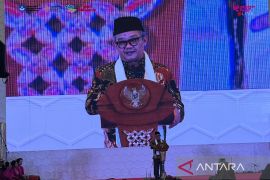"The government needs to implement a strategy to achieve economic growth of above five percent. Encouraging the performance of the manufacturing industry is an effort that must be undertaken (by the government)," he told ANTARA here on Thursday.
Manilet believes the government could make several efforts to increase the positive trend in the manufacturing industry, for instance, by conducting structural reforms for the sector.
Moreover, the government should prepare comprehensive industrial policies, offer investment and financing support, and also form fiscal policies that are focused on the sector.
Furthermore, Manilet called on the government to plan a long-term strategy to improve the quality of human resources, given that the potential for demographic bonus in Indonesia can be utilized to boost economic growth.
"The demographic bonus that Indonesia is currently enjoying needs to be adjusted to the efforts to create jobs," he stressed.
The economist believes that honing the skills and capacity of human resources could help to restore Indonesia's position as an upper middle income nation and also a high-income country in future.
Hence, such strategies must be implemented on account of the fact that the World Bank, in the World Bank Country Classifications by Income Level: 2021-2022 report, found that the COVID-19 pandemic had caused a decline in the per capita income in Indonesia.
Indonesia's per capita income plunged, from US$4,050 in 2019 to US$3,870 in 2020. The decline has pushed Indonesia back into the category of lower middle-income country.
"Hence, the most important step to take is to restore the pace of economic growth to the same level as it was before the pandemic," Manilet stated.
Related news: Manufacturing industry has crucial role in circular economy: official
Related news: Industry Ministry maps nine challenges for industry
Related news: Waste processing to boost industry's competitiveness in global market:
Translator: Astrid Faidlatul, Katriana
Editor: Sri Haryati
Copyright © ANTARA 2021











